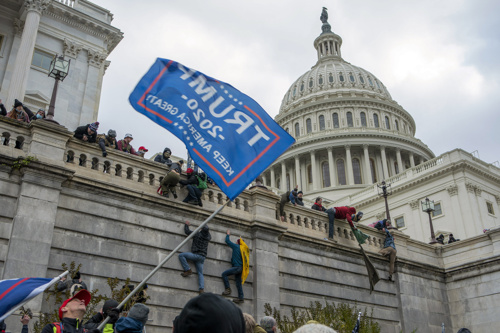| President Joe Biden is weighing whether to issue sweeping pardons for officials and allies who the White House fears could be targeted by President-elect Donald Trump’s administration, a preemptive move that would be a novel and risky use of the president’s extraordinary constitutional power. More details ... |
The presidential pardon has long been one of the most sweeping, unchecked powers granted by the U.S. Constitution. It exists as a tool to correct injustices, promote reconciliation, and foster mercy. But in recent years, this power has strayed from its original intent and is increasingly being wielded as a political weapon. President Joe Biden, facing a polarized nation and ongoing legal battles involving prominent figures, has the constitutional authority to issue preemptive pardons. But the potential misuse of such an act raises fundamental questions about the very purpose of the pardon itself.
The legal basis for preemptive pardons
The power to grant pardons, enshrined in Article II, Section 2 of the Constitution, allows the president to “grant reprieves and pardons for offenses against the United States, except in cases of impeachment.” This power is virtually limitless, save for the exclusion of state crimes and impeachment cases. Preemptive pardons, which pardon someone before they are charged or convicted, have precedent in American history. President Gerald Ford’s pardon of Richard Nixon for any crimes he “may have committed” during his presidency is the most notable example.
Should President Biden choose to issue preemptive pardons, he could shield individuals embroiled in federal investigations from prosecution. While such an action might be framed as a gesture of unity or an attempt to “move the nation forward,” it would be a politically motivated act – whether to protect allies, neutralize adversaries, or preserve his administration’s legacy.
The transformation of the pardon’s purpose
Historically, the pardon power was originally intended as an act of justice and mercy, and the last full-stop against an unjust executive branch. Alexander Hamilton, in Federalist No. 74, described the pardon as a means to temper the law’s rigidity with humanity. It was to be a mechanism to address wrongs that the justice system failed to correct, balancing legalism with compassion.
In practice, however, the pardon has increasingly been used to serve political ends. The Trump administration notably used pardons to reward loyalists, which is now being used by the Left to claim precedent for Biden’s political use. Biden’s use – or abstention – from preemptive pardons could set another precedent, further eroding the line between justice and politics.
Instead of addressing systemic injustices or wrongful convictions, pardons now seem to function as shields for the powerful and connected, deepening public cynicism about equal justice under the law.
The risks of politicizing pardons
The growing trend of using pardons for political expediency threatens the integrity of the justice system. Preemptive pardons, in particular, risk circumventing the legal process, preventing accountability before investigations and trials can reveal the truth. In an era of intense partisanship, such actions can exacerbate divisions, as opposing factions accuse one another of subverting the rule of law.
 For President Biden, the challenge lies in resisting the temptation to use this power to gain short-term political advantage or even long-term self-preservation. The optics of granting preemptive pardons, whether for administration officials, political figures, or family members, would undermine his stated commitment to restoring the norms and principles of governance.
For President Biden, the challenge lies in resisting the temptation to use this power to gain short-term political advantage or even long-term self-preservation. The optics of granting preemptive pardons, whether for administration officials, political figures, or family members, would undermine his stated commitment to restoring the norms and principles of governance.
Restoring the pardon’s true purpose
If the pardon is to retain its legitimacy, future presidents – including Biden and Trump – must recommit to its original intent. Instead of preemptively protecting political allies or appeasing public pressure, the pardon should be reserved for cases where genuine injustice has occurred. Mass pardons for nonviolent offenders, exonerations of the wrongfully convicted, or clemency for those who demonstrate extraordinary rehabilitation would exemplify the mercy Hamilton envisioned.
However, in this weaponized Department of Justice – as Biden himself admitted in his statement explaining why he pardoned Hunter – conservatives have a valid argument for Trump to insulate himself and his allies with pardons from a future weaponized government.
 Yet, should Trump choose to, for example, grant a broad, unconditional pardon to all individuals involved in the January 6, 2021 Capitol riot, regardless of their individual acts, many would rightly question if this was more an exercise in political favor than one of genuine justice, and what precedent that would set. Florida Governor Ron DeSantis, during the GOP primary, had the best view of the pardon power for J6ers — a case-by-case expedited review and actual justice.
Yet, should Trump choose to, for example, grant a broad, unconditional pardon to all individuals involved in the January 6, 2021 Capitol riot, regardless of their individual acts, many would rightly question if this was more an exercise in political favor than one of genuine justice, and what precedent that would set. Florida Governor Ron DeSantis, during the GOP primary, had the best view of the pardon power for J6ers — a case-by-case expedited review and actual justice.
Thus, the unchecked nature of the pardon power requires a president willing to exercise it responsibly … but this willingness seems contingent on the power of the executive prosecutor being restrained from political targeting. If executive powers are abused in prosecutions or pardons, they risk becoming another symbol of the systemic inequities in our justice system – where the powerful escape consequences while the powerless are left to languish.
A U.S. president has the authority to issue preemptive pardons, but whether he should is a question of principle. The pardon power is a gift meant to serve justice and humanity, not political strategy. As calls to reform or limit this power grow louder, both sides have an opportunity to set a standard for its ethical use. The true test of presidential leadership lies not in the breadth of his powers, but in the wisdom and restraint with which they are exercised.
Editor's note: Sidebar added after article was originally posted.
Notice: This column is printed with permission. Opinion pieces published by AFN.net are the sole responsibility of the article's author(s), or of the person(s) or organization(s) quoted therein, and do not necessarily represent those of the staff or management of, or advertisers who support the American Family News Network, AFN.net, our parent organization or its other affiliates.








